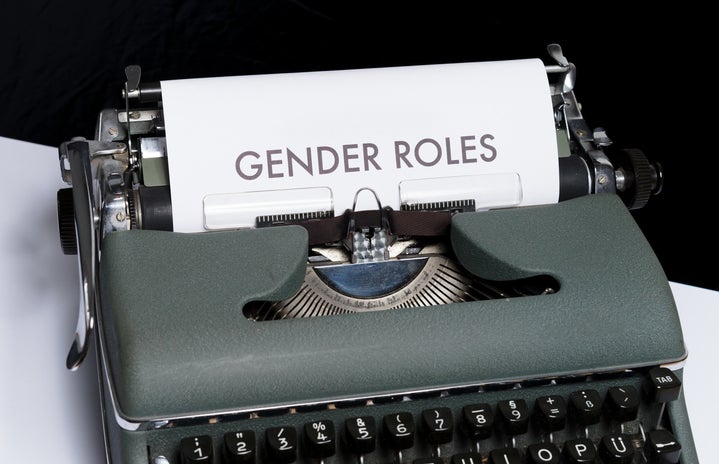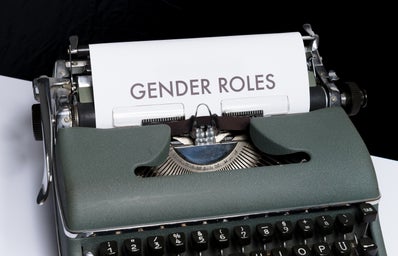Sit like a girl. Boys don’t cry.
These phrases aren’t novel to many of us. Growing up with these restrictive expectations based on our assigned gender is hard. Though it may not really be apparent, the pressures of conforming to traditional gender norms — how we are expected to act, speak, dress, groom, and conduct ourselves based upon our assigned sex — plays a big part in our lives.
Some traditional gender roles we may be familiar with are: the expectation on women to take on a nurturing and feminine figure, equipped with domestic skills and graciousness, the designated care-taker, and often not a dominant figure at work or in a household. Whereas men are often expected to take on a tough masculine image, the muscle and dominant figure, and the breadwinner in a familial situation. If I were to try to justify and come up with a reason for the existence of such gender roles, it would be that they were probably created for a sense of organisation — a means for people of the past to make sense of differences in gender and to organise us into binary biological categories.
But these forms of “organising” have turned out for the worse. When we overemphasise these ostensible rules, they become toxic. What if we don’t fit into any gender role? I may identify as a woman while feeling that an androgynous or “masculine” look best represents my identity. Does that then mean I don’t belong to a gender and thus do not serve a “purpose”? By holding gender rules strictly over our heads, society turns these gender stereotypes into restrictions. Which limits us to our perceived roles and propagates societal oppressions in the form of microaggressions against alternative expressions of gender.
My identity: I am more than just my gender
I can’t tell you the number of times my parents have told me to ‘behave like a girl’ or to ‘eat graciously like a girl’. But what does it even actually mean to act like a girl? I have always thought to myself, since I identify as a female, shouldn’t whatever I do already be like a girl?
These traditional gender roles have been apparent in our lives for so long that they may have been subconsciously influencing the way we perceive ourselves and others. As a result, gender norms shape the decisions we make and the places we end up in. An example I personally relate to now, is the misbelief that women carry an “expiry date”. The pressures of getting into a relationship and starting a family before it is “too late” has always been a stigma surrounding single women, as if after an arbitrary number she is ineligible for love. Are we seen to be just fit for marital and maternal duties? What about our career pursuits or goals outside of family building?
Constantly being told how we should be, negatively shapes our concept of self. There is nothing wrong with not agreeing with traditional gender roles or images. Gender isn’t the entirety of your identity, it is only a part of who you are. If you don’t feel like dressing in a feminine way, then don’t! If you prefer cocktails over beer, so be it!
And there is also nothing wrong with relating to the stereotypes of your gender as well. We should never feel bound to a restrictive mould, shaped by others’ perception of what gender is.
Constructs in family; how does gender come to play?
Take the image of a traditional heteronormative family: the father, the sole breadwinner of the family, while the mother is the home maker, the designated care taker for their children. Traditional gender roles have shaped us into associating men to take on the dominant figure of the household, and women to bring in the nurturing aspect for her family.
These traditional gender roles have perpetuated the idea that there should be hierarchy or power play amongst men and women in marriage, where the wife is expected to take on a lower status than her husband or that the man has to earn more financially. But what purpose do these fixed roles even serve? There is nothing wrong when we are motivated to take on these responsibilities organically. But it is in overemphasizing these strict rules about the behaviours expected of each gender, that toxicity is created.
When parents believe in and actively reinforce fixed traditional gender roles, these toxic ideals end up manifesting in their children. Therefore, growing up in a household that believes in the existence of duties in one’s gender, a child is taught to hyperfixate on gender roles which develops into toxic masculine and feminine values.
Nonetheless, it is with no doubt that in today’s age we have made much progress away from toxic gender roles, where it is even more common nowadays to see two working parents, bearing equal parental responsibilities. However, even with better gender equality today, it is still important to continue to teach our children to look beyond the confines of our gender expectations and move away from repressive mentalities. This is in hopes that we can save more from the toxicities of restrictive gender roles.
Gender roles in the Asian context
I believe Asian and Western cultures are vastly different. No doubt in today’s age there are influences from all over the globe where most of us are exposed to ideals from other cultures, widening our world view and shaping our personal morals. But ultimately, the culture we grew up in is the major factor shaping our lives. Asian and Western cultures have rather contrasting views on life values.
Asian cultures tend to adopt a hierarchical structure, valuing social relations, whereas Western cultures are more egalitarian, valuing independence. Living in an Asian society, we tend to prioritise social over individualistic ideals, which can be a detriment to our individual well being. In valuing selflessness, are we as individuals at a disadvantage? When will our own mental health come to be of importance?
Taking Singapore an Asian country for example, there is a cultural layer to gender roles, which may make people reject more liberal ideas that originate from the West. Even though the ideals we have of gender roles are not overt, we can still feel the effects of its existence; a lingering underlying expectation on us to act in accordance to gender stereotypes. With our culture viewing individuality as of secondary importance, topics on gender and identity are less talked about and at times even dismissed. As such, we often settle with what we are familiar with and few speak up to their beliefs or try to change societal constructs.
On another hand, social media has become a common outlet for expression, but it is often misused for negativity and hate. I was recently introduced to a few social media accounts on Instagram, created for the sole purpose of pushing out anti-feminist and chauvinist ideals. And don’t get me started on the comments section, which were filled with misogynistic ideals passionately supporting toxic gender stereotypes. These accounts, filled with so much hate for any kind of societal progression towards gender equality, only exist because of their deep rooted belief in a hierarchy of gender (i.e. the view that women belong to a lower social positioning than men). These advocates for toxic gender ideals unfortunately show how we still have a long way to go in educating the public about gender equality.
With a more vocal generation and greater awareness on topics like equality, maybe it is time we push harder for a change in the way our society views gender and the “gender hierarchy”, and hopefully eradicate toxic ideals for our future generations. In creating open-mindedness and having open conversations, we can gain a better understanding of how these “roles” may be harmful, and start making changes to the way we view gender as a society.


